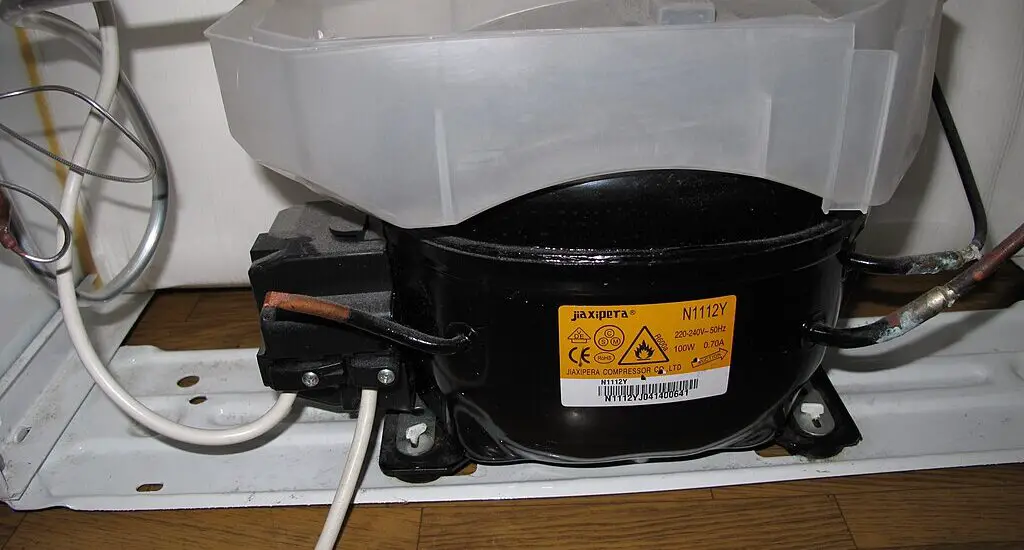Is your refrigerator compressor going out, this detailed guide aims to ease your worries and provide step-by-step information on how to tackle this problem.

Table of Contents
Identifying the Signs of a Refrigerator Compressor Going Out
Knowing the early warning signs can save you time, stress, and potentially money. The compressor is the heart of your refrigerator’s cooling system, and these are the symptoms you should look out for:
Unusual Noises: Buzzing, humming, or clicking noises coming from the back of your fridge are often signs of a failing compressor.
Increased Electricity Bill: A malfunctioning compressor has to work harder, consuming more electricity. If your bill spikes suddenly, your compressor may be the culprit.
Temperature Fluctuations: If the interior of your fridge isn’t as cold as it should be or the temperature varies too much, it could be due to compressor issues.
Frost Build-up: Excessive frost in the freezer is often a sign that the compressor is not pumping refrigerant adequately.
If any of these signs occur, immediate attention is needed to confirm that it’s indeed the compressor and not some other issue.
Consulting the User Manual
Your refrigerator’s user manual is an invaluable resource. Before panicking or calling for professional help, consult it for:
Troubleshooting Steps: Your manual will contain a troubleshooting section detailing common issues and steps for resolution.
Contact Information: It usually contains contact numbers for authorized service centers and customer service.
Warranty Details: Your compressor problem may still be under warranty, which could save you money on repairs.
Search the manufacturer’s website if you’ve misplaced your manual, as many brands offer digital versions online.
Seeking Professional Help
Once you’ve consulted your manual and are still experiencing issues, it’s time to call in the experts. Here’s how to proceed:
Search for Certified Repair Services: Look online or ask for recommendations. Ensure the service is certified for your refrigerator’s brand.
Check Reviews: Read reviews to ensure that the service provider is reputable and reliable.
Initial Contact: When calling, be specific about the symptoms your refrigerator is showing. This helps the technician understand the problem better.
Remember, a qualified technician should diagnose the issue and suggest whether your compressor needs repair or replacement.
Check out these other articles…
Refrigerator Compressor Does Not Turn Off: 4 Causes & Fixes
Refrigerator Compressor Does Not Turn On: Proven Fixes
Refrigerator Compressor Explanation: Comprehensive 411 Guide
Refrigerator Compressor Error: Easy Fixes
Refrigerator Compressor Frozen: 4 Easy Steps to Fix It
Cost Considerations and Repairs
Repairing or replacing a compressor can be a hefty financial burden. Here’s how to manage:
Get a Detailed Estimate: Always ask for a detailed written estimate that includes labor costs, parts, and any additional fees.
Compare Costs: If the repair cost is almost as much as a new fridge, it might be wiser to purchase a new one.
Check for Warranty: If your refrigerator is still under warranty, the repair could be free or at a reduced cost.
Understanding the full scope of costs involved allows you to make an informed decision.
Preventive Measures for the Future
Maintenance is key in preventing future compressor issues. Adopt these practices:
Clean the Coils: Dirty coils make the compressor work harder. Clean them at least twice a year.
Airflow: Ensure your fridge has adequate space around it for airflow, which can keep the compressor from overheating.
Regular Checks: Periodically check the temperature settings and make adjustments according to the manual’s recommendations.
Regular maintenance can go a long way in preventing future issues and extending the life of your refrigerator.